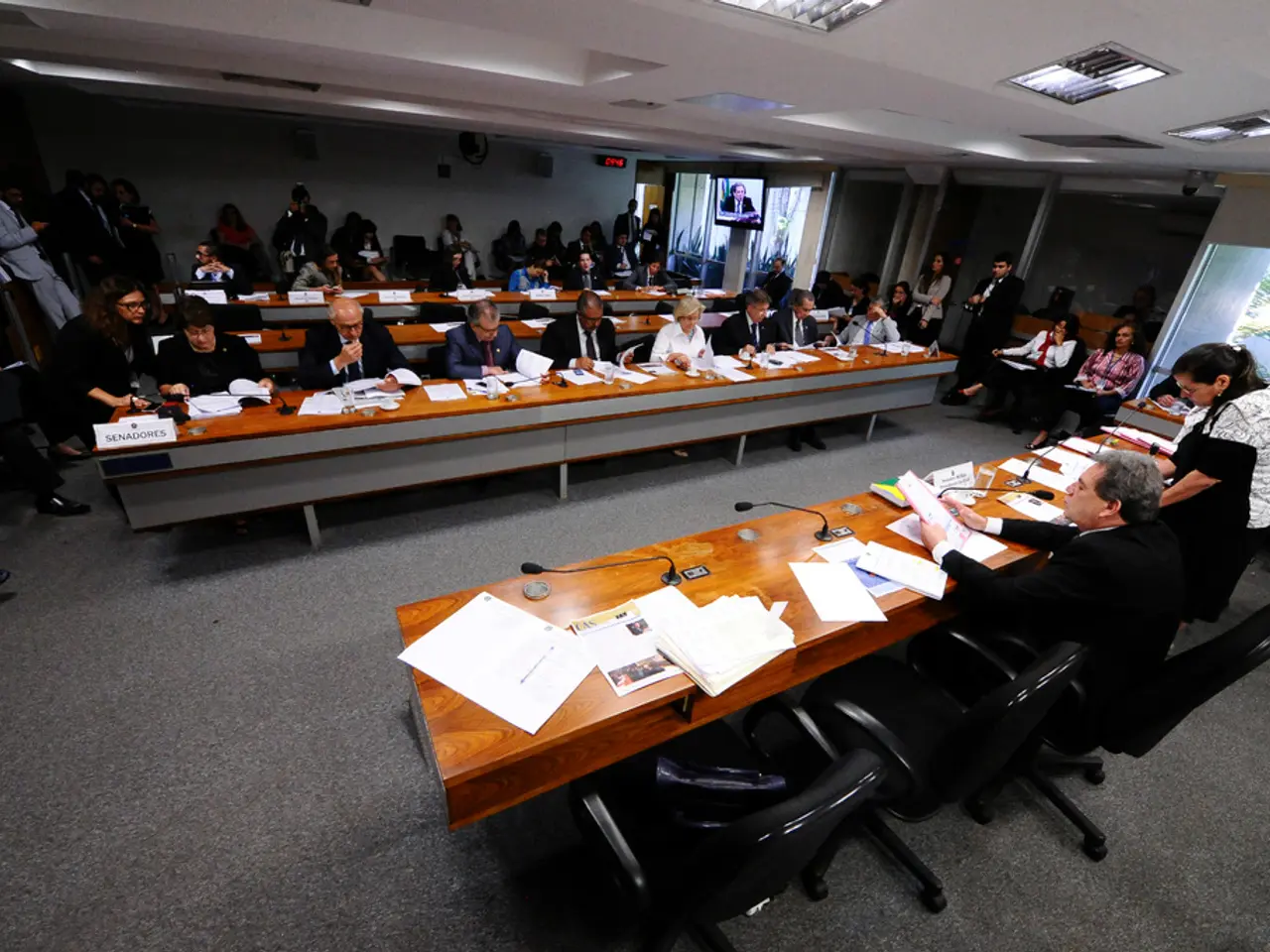Alleged imposter claiming US Secretary of State position
The U.S. State Department is on high alert following an incident where an imposter, utilising artificial intelligence, posed as Secretary of State Marco Rubio. The impersonator created a Signal account mimicking Rubio's identity and contacted multiple government and foreign officials, leaving voice messages and texts attempting to solicit communication.
In response, the State Department issued an urgent cable on July 3, 2025, sent to all U.S. embassies and consulates, warning diplomats and officials about these impersonation attempts. Although the hoaxes were described as "not very sophisticated" and unsuccessful, the Department deemed it prudent to caution employees and foreign governments as part of a broader effort to protect information security amidst increasing foreign actor threats.
The Department emphasised that there is no direct cyber threat from this particular campaign but highlighted the risk of exposing sensitive information if targeted individuals are compromised. The State Department is currently investigating the matter thoroughly and stated it "continuously takes steps to improve the department's cybersecurity posture to prevent future incidents," reflecting ongoing efforts to enhance defences against such AI-driven deepfake and spoofing attacks.
Key protection and response measures include alerting all diplomatic and consular posts worldwide to the impersonation attempts, raising awareness among government officials and foreign partners, investigating the incident to identify perpetrators and improve detection and prevention strategies, strengthening cybersecurity protocols and identity authentication, and monitoring and preparing for evolving AI and deepfake technologies.
The U.S. Department of State takes its responsibility for protecting its information seriously. The incident, first reported by The Washington Post, began in mid-June, and the department's goal is to prevent future incidents like the one involving the imposter posing as Secretary of State Marco Rubio. No further details have been provided due to ongoing investigations, and the department's statement did not mention any specific individuals or entities involved in the investigation.
The extent of the damage and whether sensitive information was exchanged remains unclear. The department's focus is on enhancing its cybersecurity to safeguard its information, but no specific details about the improved cybersecurity measures were provided. The department's statement did not indicate when the improvements to its cybersecurity would be completed. The imposter sent messages to high-ranking politicians, including foreign ministers, a U.S. governor, and a member of Congress. The U.S. State Department is investigating the incident, and updates will be provided as information becomes available.
- The State Department's continuous focus on cybersecurity grows more crucial as incidents like the AI-driven deepfake impersonation of Secretary of State Marco Rubio underscore the need for updates in technology, politics, general-news, and crime-and-justice concerning the vigilance against foreign actor threats.
- As the department proceeds with its investigation into the impersonation attempts, it is crucial for diplomats and officials to remain vigilant, prioritizing cybersecurity in technology, politics, general-news, and crime-and-justice to safeguard sensitive information and prevent similar incidents from occurring in the future.




